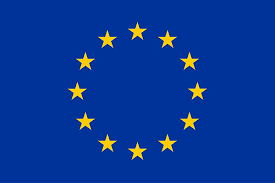
The European Union (EU) Ambassador to Nigeria and ECOWAS, Mr Michel Arrion says EU will not increase its financial assistance to Nigeria.
Arrion made this known in Abuja while delivering a Distinguished Lecture organised by the IBB Golf Club, with the theme “40 years of European union in Nigeria: Lessons learned and the way forward”.
The ambassador who said that EU was not promising further assistance to Nigeria however said that Nigeria remains EU key partner in view of the role it plays in global affairs.
The envoy also stressed that the Union would scale up its efforts towards the country’s institutional, political and economic development for a more prosperous future.
He said that Nigeria could not be said to be poor, as it is has enough resources to meet its developmental needs.
While expressing concern that on the economic level of the country Arrion called for a more equitable distribution of the nation’s wealth to ensure growth and stability and unleash its enormous economic potentials.
Arrion explained that the combine aides to the country were about ten per cent of the country’s annual budget.
According to him, the Official Development Assistance (ODA) flow in Nigeria is about 2.5 billion dollars yearly, which correspond roughly to about 10 per cent of the federal budget (N7,3trillion or 24 billion dollars).
This, he said has raised the question of should EU continue to give aide to Nigeria.?
Arrion, however said the regional block would scale up its efforts towards the country’s institutional, political and economic development for a more prosperous future.
“We are not offering more financial support, we are proposing more political and policy dialogue, technical assistance, capacity building, training, transfer of technology.
We also proposing more advocacies for more private investments and other innovative sources of funding,” the EU envoy said.
The envoy therefore called for improving in tax collection to finance the development of the country.
According to him Nigeria must find alternative funding to ODA including improved tax collection which must be improved at least five times more and also spend better.
Quoting Price Water Cooper (PwC 2016), he said: “Nigeria collects about N5.5 trillion or 18 billion dollars per year.
“About 10 million people (10 per cent of adult population) are registered for personal income tax (half of them in Lagos).
“The rate of VAT compliance by registered entities is about 12 per cent. The rate is lower for corporate income tax nine per cent.”
He also said Nigeria must attract more foreign investment five times more, to reach the level of Angola or Vietnam for instance and put in place more and better Public Private Partnerships.
Arrion said the evolution of vibrant relationship of equal partners between Nigeria and the EU was founded on shares values and aspirations and mutual trust.
According to him EU in its 40 years of engagement with Nigeria has identified development priorities, funded projects to stimulate the Nigeria’s economy, reduce hunger and disease.
He said that the union had also helped to enhance institutional capacities, strengthen governance and fight insecurity in Nigeria.